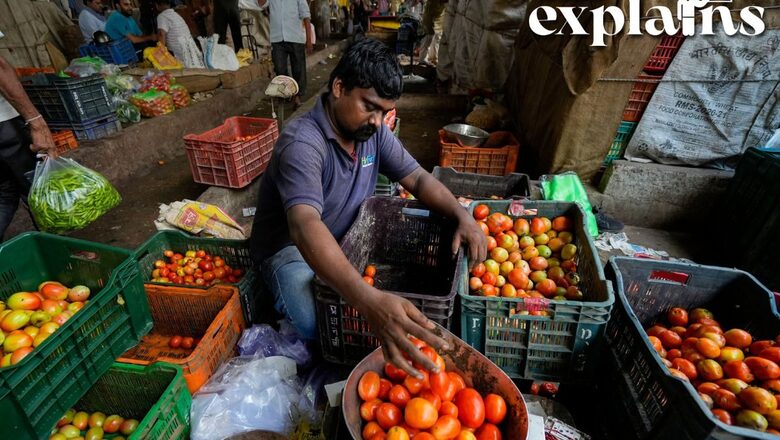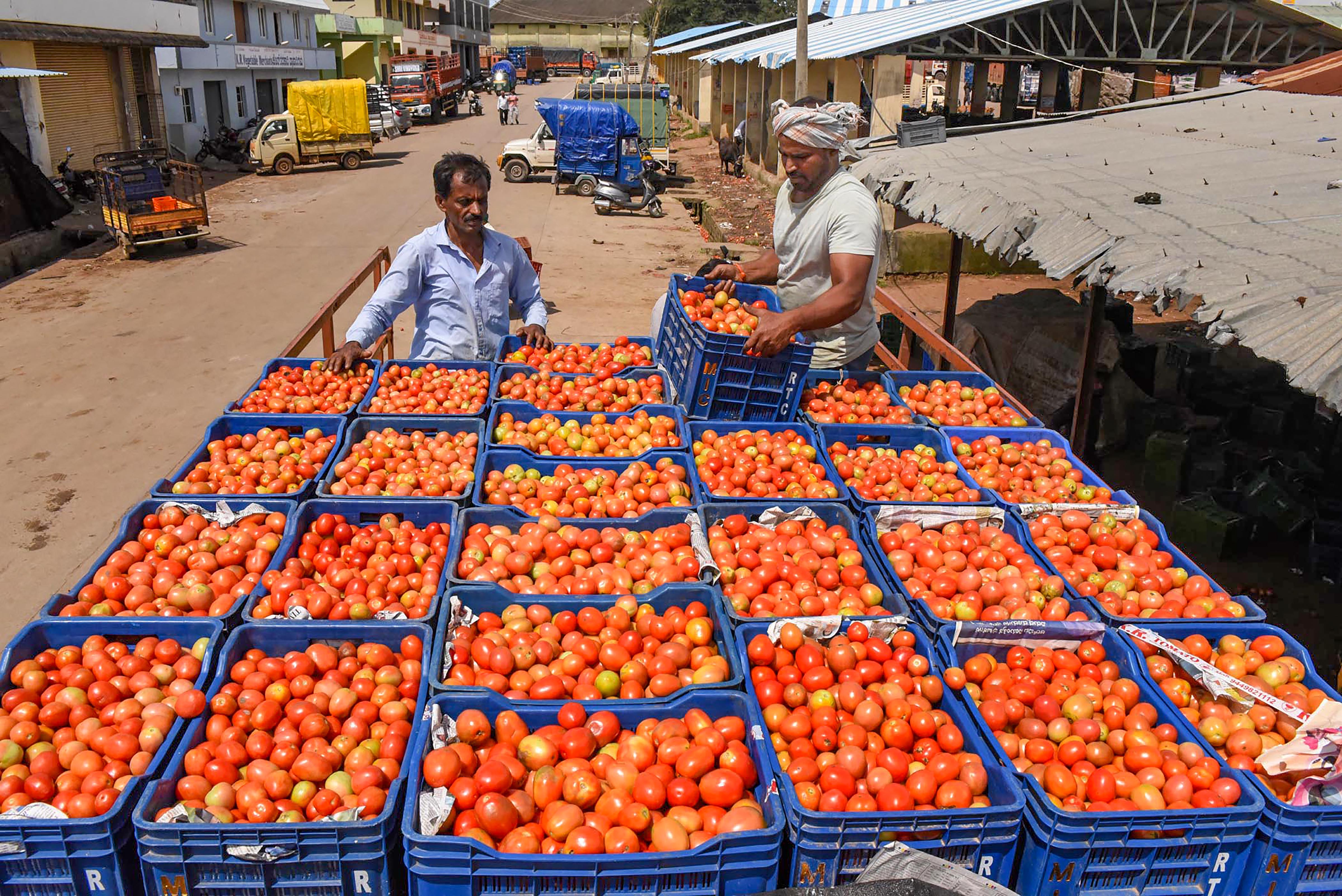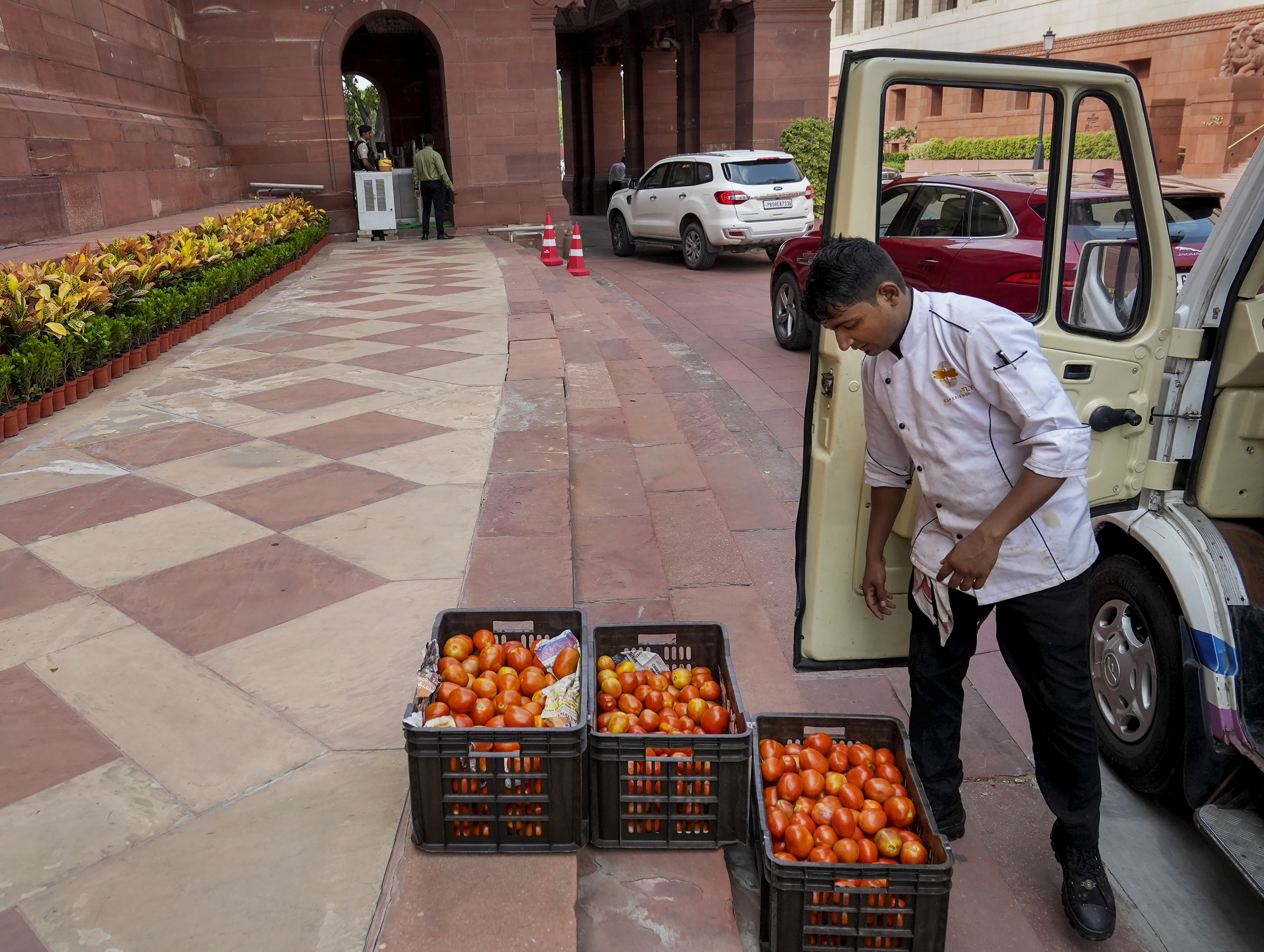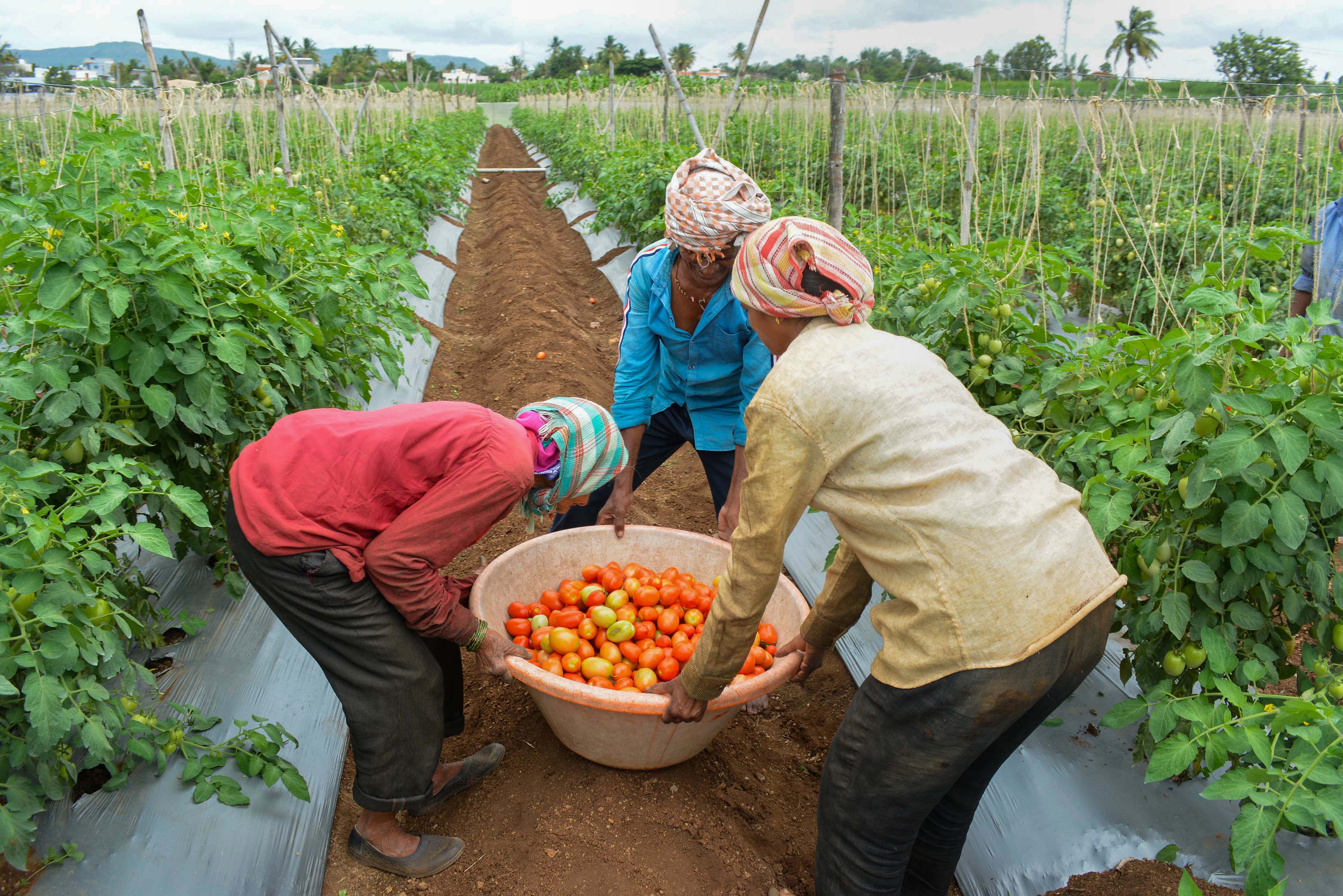
views
Tomato prices have remained high across the country for more than a month as the retail price of the vegetable remained above Rs 200 per kilogram in several parts of the country. After a brief relief, people in many states, including Delhi, are paying out much more to buy the vegetable.
The cost of tomatoes is flaring up even after the government intervened last month to provide the vegetable to consumers in major cities, including Delhi NCR region, at subsidized rates. While in July, the rates remained over Rs 200 rupees per kilogram, consumers are unlikely to get any immediate relief from the high rates.
Tomato Prices Soaring Again
Tomato is currently selling at a rate of more than Rs 200 a kilo and its prices are likely to touch Rs 300 per kilogram in the coming days, according to wholesale traders.
In Delhi, the prices were listed at Rs 173 per kg last Monday. However, the retail price of tomato touched Rs 203 per kg on Wednesday, according to the data maintained by the consumer affairs ministry.

Meanwhile, the price of the staple was ruling at Rs 259 per kg at Mother Dairy’s Safal retail outlets. In Mumbai, the vegetable’s price was at Rs 157 per kg.
Tomato prices in Uttar Pradesh’s Bulandshahr were the highest across the country at Rs 257 per kg. It had reached Rs 263 per kilo on Wednesday, according to Firstpost.
In south and central India too, the rainfall has disrupted the prices of tomatoes where the wholesale rates touched new high of Rs 180-200 per kg for superior varieties in Karnataka and Maharashtra.
Why are Tomato Prices High?
The high prices of the tomatoes can be traced back to their low rates in April and May, which led many farmers to abandon the crop. Moreover, the unusual heat of March and April also saw pest attacks that adversely affected the production, a report in The Indian Express said.
In Maharashtra, farmers who used to sell tomatoes for around Rs 10-12 per kg had to sell for as low as Rs 5 per kg. Therefore, the farmers grew other crops on their farm lands instead of tomatoes affecting the overall supply.

The price of the vegetable has also been high as their supply has under pressure for more than a month now due to disruptions caused due to heavy rainfall in the key producing regions. The surge in prices has been attributed to various factors, including supply chain disruptions, climatic conditions and other market dynamics.
Kaushik, a member of Agricultural Produce Marketing Committee (APMC), said that vegetable wholesalers are facing losses as the sale of tomato, capsicum, and other seasonal vegetables has fallen drastically. He said that the prices of tomatoes have shot up to Rs 220 per kilo from Rs 160 per kilo in the wholesale market, owing to which retail prices can also go up.
A wholesaler in Azadpur Mandi said that there has been a lot of difficulty in transportation of tomatoes due to landslides and heavy rain in Himachal Pradesh. “It is taking 6 to 8 hours more than usual in exportation of vegetables from the producers due to which the price of tomato might reach nearly Rs 300 per kilogram,” the wholesaler said. Himachal Pradesh has witnessed heavy rains in July, resulting in damage to crops.

In Andhra Pradesh and Karnataka, the soaring rates can be attributed to the late onset of the monsoon; and the unseasonal rain and flooding in during the harvest months.
When will the Situation Improve?
According to Ashok Kaushik, Azadpur Tomato Association president, the situation can improve in the next ten days where the consumers can see some respite from the skyrocketing prices.
The wholesale tomato prices in Ahmedabad are expected to fall in the next two weeks. However, experts believe that consumers will bear the brunt of high grocery inflation at least until September due to the disruption in supplies of key staples.
Moreover, the farmers will start planting the kharif tomato, the transplanting of which will begin after the monsoon is reactivated. “It will be only post August that arrivals will improve and retail prices can see any correction,” Ajit Korde, a tomato grower from Maharashtra, reportedly said.




















Comments
0 comment